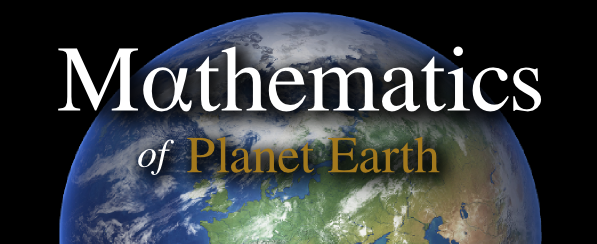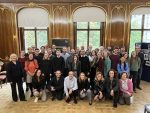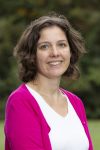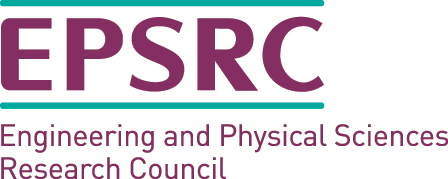
LMS Research School
Mathematics of Climate
8-12 July, 2019
University of Reading, Room Phillip Lyle G74, Campus_Map)
Organised in partnership with London Mathematical Society
Research lying at the intersection between mathematics and geoscience has been gaining more and more prominence in recent years, e.g. the worldwide Year of Mathematics for Planet Earth 2013 which incited a lot of activities. The Planet Earth is an excellent example of a forced, dissipative non-equilibrium system dominated by nonlinear processes and featuring multi-scale interactions. The challenges posed by this system have been and will be an inspiration for mathematicians and geoscientists alike. The synergy between mathematics and geoscience is exemplified by the scientific research areas like chaos theory, fractals, extreme events, and data assimilation, which stem or essentially developed through such an interaction. More recently, interdisciplinary exchange with geosciences has led to important advances in further crossover areas such as geometrical mechanics and optimal transport theory with geophysical fluid dynamics, coarse graining and model reduction techniques.
This School aims to educate and motivate young talented PhD students and early career scientists through three specialist lecture courses (supplemented by tutorials) and guest lectures that will provide a panorama of some of the most promising research areas within this interdisciplinary field. The school is organised in partnership with the London Mathematical Society and with the support of the EPSRC-funded CDT Mathematics of Planet Earth (Imperial/Reading).
Speakers (See abstracts at the bottom of this page):
– Course 1: Hakima Bessaih (University of Wyoming): Data-assimilation of PDEs through nudging and Random vortex methods.
– Course 2: Alberto Carrassi (NERSC, Norway): Mathematical Theory of Data Assimilation with Applications
– Course 3: Darryl Holm (Imperial College, London): Variational principles for Stochastic Fluid Dynamics
Guest Lectures:
– Beatrice Pelloni (Heriot-Watt): Mathematical aspects of the semigeostrophic system
– Peter Ashwin (Exeter): Response of the Pleistocene ice-ages to astronomical forcing
Tutors:
Course 1: Giulia Carigi (Reading); Course 2: Colin Grudzien (Assistant Professor of Statistics, University of Nevada, Reno); Course 3: Erwin Luesink (Imperial)
Guest Speaker at visit to MERL:
– Ros Cornforth (Walker Institute, Reading): Climate Information for Decision-Making: Responding to Climate Change in Developing Countries.
Speaker Abstracts:
Hakima Bessaih (University of Wyoming): Data-assimilation of PDEs through nudging and Random vortex methods.
An introduction to some data assimilation methods for PDEs are introduced. They are mainly based on nudging techniques that are motivated by feedback controllers. The observational measurements are given by finite volumes or nodal points and some random errors in the observations are taken into account. We analyze the performance of such algorithms. Specific bounds are given in terms of the resolution density of the observations and the parameters of the systems studied. Results on the average time errors in mean are stated. The last lecture will be devoted to the introduction of some random vortex methods for 3d fluids. Specifically, some dynamics of vortex filaments will be stated along with a mean field and propagation of chaos results. Their connections to 3d vector valued PDEs and in particular 3d Euler equation will be analyzed.
Alberto Carrassi (NERSC, Norway): Mathematical Theory of Data Assimilation with Applications
State estimation theory in geosciences is commonly referred to as data assimilation. This term encompasses the entire sequence of operations that, starting from the observations of a system, and from additional statistical and/or dynamical information (such as an evolution model), provides an estimate of its state. Data assimilation is common practice in numerical weather prediction but its application is becoming widespread in many other areas of climate, atmosphere, ocean and environment modelling. The course will provide first the formulation of the problem from a Bayesian perspective and will then present the two popular families of Gaussian based approaches, the Kalman-filter/-smoother and the variational methods. Ensemble based methods will then be considered, starting from the well-known Ensemble Kalman filter, in its stochastic or deterministic formulation, and then the state-of-the-art ensemble-variational methods, as well as particle filters. The course will focus on the specific challenges that data assimilation has encountered to deal with high-dimensional chaotic systems, such as the atmosphere and ocean, and the countermeasures that have been taken and which have driven the recent dramatic development of the field.
Darryl Holm (Imperial College, London): Variational principles for Stochastic Fluid Dynamics
The lectures will be based on Hamilton’s principle for ideal fluids and its infinite dimensional symmetries for temporally stochastic evolution of fluids under spatially smooth invertible maps. This means that the Lagrangian particle trajectories exist as stochastic paths generated by Eulerian stochastic vector fields. Thus, Hamilton’s principle retains its original gauge symmetry under relabelling of Lagrangian particles. Because this gauge symmetry persists, Noether’s theorem delivers Kelvin’s theorem for circulation dynamics of the stochastic flow in the same form as for the deterministic case, but now Kelvin’s circulation loop moves with the fluid along a stochastic path. The corresponding nonlinear stochastic PDEs for the fluid motion provide a probabilistic estimation of model error, based on the observed spatial correlations of uncertainties in the fluid transport. Thus, this variational approach yields a data-driven model of stochastic flow for probabilistic estimates of Variability in Geophysical Fluid Dynamics (GFD). Details and examples for GFD may be found in: D.D. Holm, Proc Roy Soc A, 471: 20140963 (2015)
Arrival & Registration
Sunday dinner and Monday Breakfast: Dinner is served between 18.00 – 19.45, Breakfast between 07.30 – 09.00 at Eat at the Square (no vouchers necessary as your name will be on a list at the tills).
Monday morning: Registration in Lyle G74 from 08.30 – 09.00 – you will receive your meal & drinks vouchers and badges at this time.
Timetable:
|
Time |
Monday Lyle G74 |
Tuesday |
Wednesday Lyle G74 |
Thursday Lyle G74 |
Friday |
|
8.30-9.00 |
Registration/welcome |
|
|
|
|
|
9.00-10.00 |
Carrassi |
Carrassi (GU01) |
Tutorial Carassi |
Tutorial Carrassi |
Bessaih (GU01) |
|
10.00-11.00 |
Carrassi |
Bessaih (GU01) |
Bessaih |
Bessaih |
Tutorial Holm (GU01) |
|
11.00-11.30 |
Coffee break |
Coffee break |
Coffee break |
Coffee break |
Coffee break |
|
11.30-12.30 |
Guest Lecture: Pelloni |
Carrassi (GU01) |
Holm |
Holm |
Holm (Lyle G74) |
|
12.30-14.00 |
Buffet Lunch & Poster Session Maths 112 |
Lunch (voucher) |
Lunch (voucher) |
Lunch (voucher) |
Lunch (voucher) |
|
14.00-15.00 |
Holm |
Bessaih (Lyle G74) |
15.00 Visit to MERL 16.00 Talk Cornforth, 17.00 – 19.00 BBQ |
Holm |
Guest Lecture: Ashwin (Lyly G74) |
|
15.00-16.00 |
Holm |
Carrassi (Lyle G74) |
Bessaih |
Tutorial Bessaih (Lyle G74) |
|
|
16.00-16.30 |
Tea break |
Tea break |
Tea break |
||
|
16.30-17.30 |
Tutorial Carrassi |
Tutorial Carrassi (Lyly G74) |
Tutorial Bessaih |
||
|
17.30-18.30 |
Tutorial Holm |
Tutorial Bessaih (Lyly G74) |
Tutorial Holm |
Lecture Rooms:
The room Lyle G74 is located in the Phillip Lyle (building 32 on the map). It is in the building on the ground floor. You go up the stairs (ramp) enter the building and turn left. The lecture hall GU01 is located in the meteorology building (building 58 on the map), on the ground floor.
Organisers:
Valerio Lucarini,Tobias Kuna, Jennifer Scott, Dan Crisian
Email the organizers at t.kuna-AT-reading.ac.uk.
Funding:
The school is in partnership with the London Mathematical Society (LMS). and supported by the EPSRC Centre of Doctoral Training Mathematics of Planet Earth. The LMS is the UK’s learned society for mathematics. Registered charity no. 252660 (www.lms.ac.uk)
Travelling to Reading Find out how to reach us from the airport, by train, and from Reading town centre here: http://www.reading.ac.uk/about/visit-us.aspx
Arriving by Air
- From Heathrow: A direct bus service runs between Heathrow airport and Reading station. Buses run every 30 minutes, during the day, and take about 40 minutes. For more information, please visit https://www.firstgroup.com/berkshire-thames-valley/rail-air/about You can get a ticket either from the driver or in advance online https://www.firstgroup.com/berkshire-thames-valley/rail-air/buy-tickets
- Arrivals in Terminals 2 & 3: follow the signs for bus and coach, this takes you underground, then follow the signs Heathrow Central Bus Station, a 4 – 7 minute walk.
- Arrivals in Terminal 5: follow signs for Local Buses and go to Stand 9.
- Arrivals in Terminal 4: use the FREE Heathrow Express rail shuttle service to the Heathrow Central Bus Station at Terminals 2 & 3.
- From Gatwick: there are direct trains from Gatwick Airport (GTW) to Reading Station (RDG) approximately once an hour during the day and takes about 75 minutes. You can buy tickets at the station or online https://www.nationalrail.co.uk/ If you wish to book a taxi from either Heathrow or Gatwick to Whiteknights Campus contact one of the University approved taxi companies for a quote:
- YellCars: http://yellcars.com/ or email manager@yellcars.com
- Loddon Cars: https://www.loddoncars.com/ or email bookings@loddoncars.com
A taxi from Heathrow will cost from approximately £50 depending on the number of passengers and items of luggage. Parking and waiting time will be charged extra. A taxi from Gatwick will cost from approximately £90 depending on the number of passengers and items of luggage. Parking and waiting time will be charged extra.
Local Transport
Once you arrive at the train station you can take a taxi or bus, the bus stops and taxi rank can be found outside the station.
- A taxi will cost you approximately £8 and a single bus journey will cost you £2.00 (a day ticket is £4.00. You purchase your ticket on the bus and will need either the exact change or a contactless bank card).
- Buses: https://www.reading-buses.co.uk/
- A comprehensive guide to finding the University: http://www.reading.ac.uk/about/visit-us.aspx
- Reading Station information: https://www.networkrail.co.uk/stations/reading/
- The station map might help you orient yourself: https://cdn.networkrail.co.uk/wp-content/uploads/2019/04/Reading-Station-Map.pdf
Maps
- A map of the town
- A map of the campus with the main venues of the school
- Google map location of the Mathematics and Statistics Department
- Google map location of the Meteorology department were the lectures take place.
Housing
All housing are on the campus.
- Students will have accommodations in students housing: Padworth HouseYou will receive relevant details by email. See also the map
- Lecturers will have accommodations in: The Cedars hotel. See also the map
Arrival instructions: you will receive details from Venue Reading nearer the date, but Check-in for accommodation is usually from 2pm, and check out at 10am on the day of departure. Late arrivals can use the call point on the wall outside reception which will contact security who will issue the room key.
Social Activity MERL:
We have a social activity on Wednesday 10th July. We will have barbecue at MERL (Museum for English Rural Life. The museum is in walking distance from the campus: 6 Redlands Rd, Reading RG1 5EX (google maps link) see also the following map and on the map of the town
Catering
Breakfast and Dinner are self-service Conference meals, delegates names are checked off a list.
Evening meals: self-service hot conference dinner at Eat at the Square from Sunday evening through Thursday evening, except for the BBQ on Wednesday, voucher for drinks which can be used at Park House – a bottled beer/a glass of wine/a soft drink.
Dinner choice comprises:
- 2 meat hot dishes
- 1 fish hot dish
- 1 vegetarian dish
- Rice/potatoes/pasta as appropriate
- Seasonal vegetables
- Salad bar
- Bread rolls with butter
- Fresh fruit salad
- Dessert
- Tea & Coffee
Breakfast will be self-service conference breakfast at Eat at the Square
Lunch vouchers can be used in Eat at the Square
Food preferences and intolerances notified on registration will be catered for and clearly labelled.







